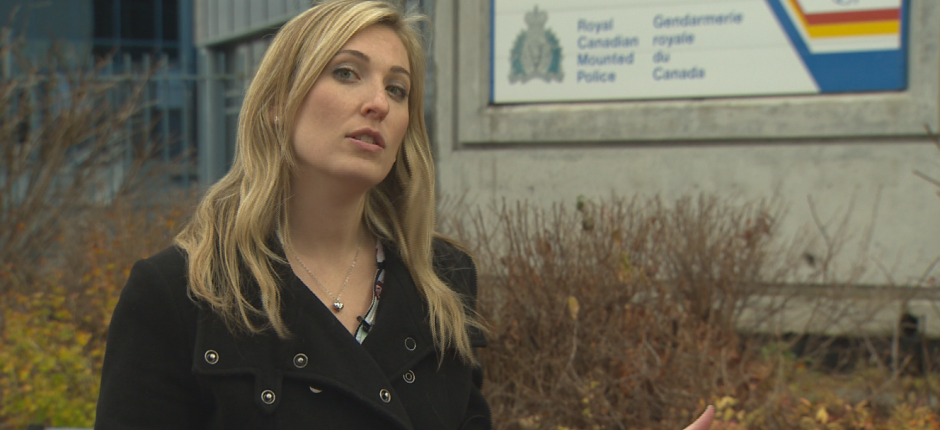By Laura Stone
2015 Greg Clark Award Recipient

Ottawa – Pulling up to the RCMP’s national division in east-end Ottawa this summer, I had no idea what to expect. Who would I meet? What would I see? And would the force even let me in on how their investigative process works? It was everything I could have hoped for – and more.
What I experienced over several days was a window into how the RCMP handles the most politically-sensitive files in Canada: those involving government, elected officials and yes, the Senate. I met with investigators, attended meetings, and had frank discussions with those in charge of the Senate files. Supt. Denis Desnoyers, who helped coordinate my visit, went over in detail how the force investigates the country’s political, social and economic institutions. I learned about the importance of the paper trail in such cases, and how investigators build their case and prepare it for court from the ground up.The award helped me build trust with the force in a way that I wouldn’t have been able to do on my own. The fact that it is designed to further understand a subject or institution fosters a mutual understanding between the two parties, and helps build a relationship before you even walk through the door.In my case, I met with RCMP Assistant Commissioner Gilles Michaud before I started my shadowing of the sensitive investigations unit. I explained what I wanted to do and why: I’ve been covering the Mike Duffy trial and other so-called “Senate scandals,” and I wanted to see the other side of it. How do investigations begin? Who is involved? And how do the Mounties even go about investigating such allegations of fraud and wrongdoing by public officials? But what the RCMP was offering me was unprecedented – witness to an active investigation, one involving the country’s highest institution. It was an extremely risky move on their part. And they wanted reassurance I wouldn’t compromise their investigation.We worked out an arrangement that both Global News and the RCMP could live with – a non-disclosure agreement, with an understanding that I would be writing stories from my time in the unit. The RCMP also wanted a look at what I produced before it was published, in case an element of the investigation was compromised unwittingly. We agreed, but only because we felt our journalistic standards would be intact.
The experience for enriching my journalism was priceless. Being able to sit in on meetings where the investigators talked openly about which senators to look into, how they would ask questions in their investigation, and who would be in charge of the files, gave me insight into how the process works. I also got face time with those in charge of the unit, who spoke at length about some of the challenges involved in the sensitive investigations – such as reluctance on the part of public officials to share information with the police.
All in all, it was a wonderful experience that helped me understand how the national police force goes about its work. And I hope they now understand a bit more about journalists – that we want to understand how these investigations work in order to properly convey it to the public. I hope my time in the unit, and the work I produce, helps strengthen the relationship between police and the media.Laura Stone
Read Laura Stone’s series on Globalnews.ca:
Exclusive: Inside the RCMP’s Senate investigation
Part 2: How the RCMP investigates the Senate
Part 3: How Mike Duffy will impact the RCMP’s Senate investigation
To read more about the Greg Clark Award, visit the award page. The award will begin accepting applications in early 2016.
The Canadian Journalism Foundation would like to thank the following for for their generous support of the 2015 Greg Clark Award:




